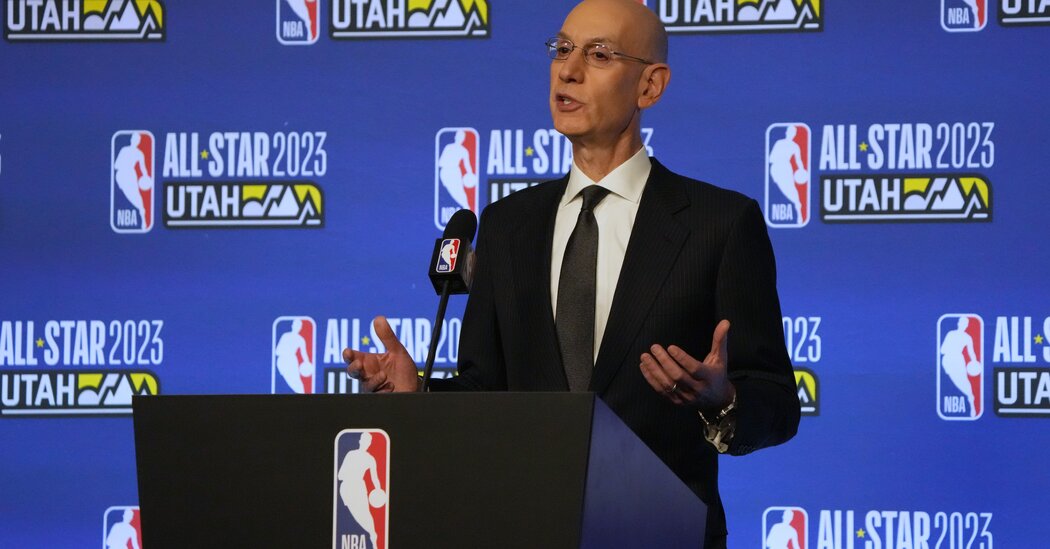
The N.B.A. and N.B.A. players union have agreed to a new collective bargaining agreement that will ensure labor peace, the league announced Saturday morning. The new deal must be ratified by N.B.A. players and the league’s board of governors before it becomes official.
The deal includes the addition of an in-season tournament with monetary rewards for players and coaches who win it, the removal of marijuana as a banned substance, and a second luxury tax tier, according to a person familiar with the terms who requested anonymity because the deal is not ratified.
The new collective bargaining agreement will begin next season and last for seven years, with a mutual opt-out clause after six years, the same person said.
Although some expected that this collective bargaining agreement would lower the age limit for entering the N.B.A. draft from 18 to 19, the sides did not agree to that. The age limit will remain at 19, which means most players coming out of high school will need to wait a year before entering the draft.
The league announced the deal in a tweet at 2:59 a.m. Saturday. The parties had agreed to extend the midnight deadline for either side to opt out of the current agreement, which has been in effect since 2017.
Had the sides not agreed or come close by Friday, the league intended to exercise the opt-out clause, according to Commissioner Adam Silver. That would have caused the current collective bargaining agreement to expire on June 30 instead of next year, compressing the time the sides would have had to avoid a work stoppage.
The N.B.A. has not had a work stoppage since the lockout in 2011, which delayed the start of that season until Christmas.
This deal is the first negotiated by executive director Tamika Tremaglio, who began her tenure as the head of the union in 2021, and for CJ McCollum, the Pelicans guard who became its president in August of that year.
The second luxury tax tier appears to be a compromise from what the league had wanted. The league had been concerned that some teams were at too great of a disadvantage because a small number of them vastly outspent the others through salary cap exceptions within the existing luxury tax system. This season, the Golden State Warriors and Los Angeles Clippers are both paying luxury taxes and spend far more on their star-studded rosters than any other team. To prevent that spending imbalance, the league had hoped to institute a fixed sum that teams could spend on salaries, but the union made clear early on that it would not accept any hard spending limit for teams.
The sides hope the new tier will allow more teams to enter the luxury tax.
Adding a tournament during the N.B.A. season had long been a priority for Silver.
“It’s something that I remain excited about,” Silver had said during a news conference in September. “I think it continues to be an opportunity within the current footprint of our season to create some more meaningful games, games of consequence, during an otherwise long regular season.”